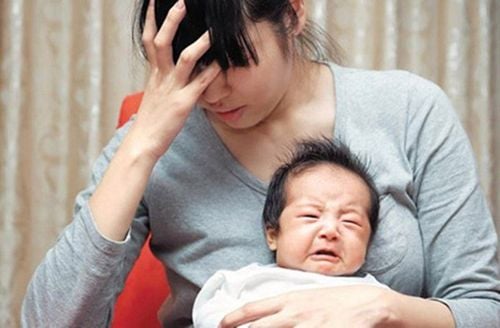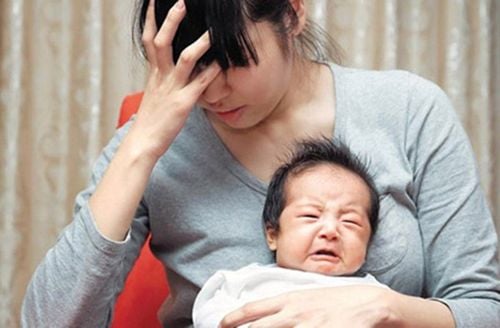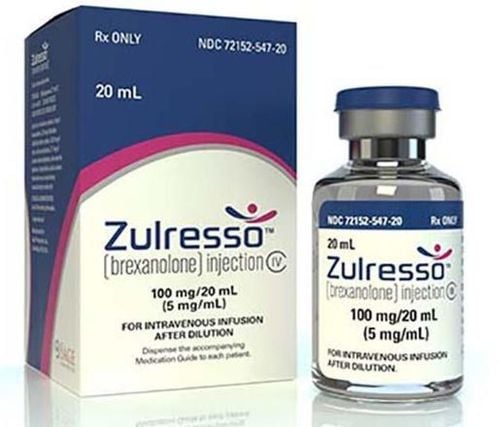This is an automatically translated article.
Postpartum depression is a complex mix of physical, emotional, and behavioral changes that occur in a woman within four weeks of giving birth. The diagnosis of postpartum depression is not only based on the time interval between birth and onset, but also on the severity of the depression. So is postpartum depression dangerous?1. What is postpartum depression?
Postpartum depression is associated with the chemical, social, and psychological changes associated with having a baby. This term describes a range of physical and emotional changes that many mothers go through after giving birth. The good news is that postpartum depression can be treated with medication and counseling.Chemical changes associated with a rapid drop in hormones after birth. However, scientists say the actual link between the drop in these hormones and depression is still unclear. But what is known is that levels of estrogen and progesterone, the female reproductive hormones, increase tenfold during pregnancy. Then, these two hormones drop sharply after birth. It is not until three days after childbirth that the levels of these hormones return to pre-pregnancy levels.
In addition to these chemical changes, the social and psychological changes associated with having children also contribute to an increased risk of depression.
2. Types of postpartum depression
There are three types of mood swings a woman can experience after giving birth:Postpartum “Baby Blues” syndrome, which occurs in most women in the first few days immediately after childbirth, however it is considered normal. A new mother has sudden mood swings, such as feeling very happy and then feeling very sad. The mother may cry for no reason and may feel impatient, irritable, restless, anxious, lonely, and sad. Postpartum “Baby Blues” syndrome may last only a few hours or one to two weeks after birth. This syndrome usually does not require treatment. Often, just joining a mothers support group to share experiences or talk to other mothers will be effective in alleviating the symptoms of this syndrome. Postpartum depression (PPD) can occur days or even months after giving birth. Postpartum depression can happen after any birth. The mother may experience emotions similar to "Baby Blues" such as sadness, despair, anxiety, irritability - but the difference with "Baby Blues" syndrome is that the mother feels these symptoms. much stronger. Postpartum depression often prevents mothers from doing the things they need to do every day. When a woman's ability to function is affected, she needs to go to a medical facility for examination, diagnosis and treatment. Your doctor can screen you for symptoms of depression and come up with a treatment plan. Postpartum Psychosis is a very serious mental illness that can affect new mothers. It can happen early but usually occurs within the first three months after childbirth. Women may lose touch with reality, having hallucinations (the mother hears voices but not in reality) and delusions (strongly believing things that are irrational). Visual hallucinations (seeing things that are not real) are less common. Other symptoms include insomnia, agitation and anger, fast walking, restlessness, and strange feelings and behaviors. Women with postpartum psychosis require immediate treatment and almost always require medication. Some mothers with this syndrome need to be hospitalized because they run the risk of hurting themselves or others.
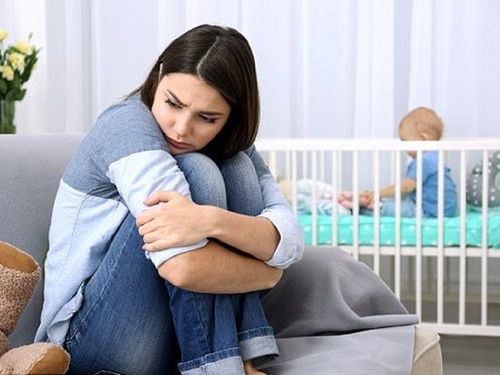
Trầm cảm sau sinh có thể xảy ra vài ngày hoặc thậm chí vài tháng sau khi sinh con
3. Postpartum depression causes
There is no single cause that can cause postpartum depression, physical and mental problems may play a role in the mechanism of postpartum depression.Physical changes. After giving birth, a significant drop in the amount of hormones (estrogen and progesterone) in a woman's body can contribute to postpartum depression. Other hormones produced by the thyroid gland can also drop drastically, which can make postpartum women feel tired, sluggish, and depressed. Emotional problems. After giving birth, you're sleep-deprived and overwhelmed by having to take care of your baby, so it can be difficult for you to handle even the small issues of everyday life. You may worry about your ability to care for your newborn, feel less attractive to your husband, struggle with your sense of self-worth, or feel a loss of control over your life. Any of these problems can contribute to postpartum depression. Risk factors that increase the likelihood of postpartum depression
Any new mother can develop postpartum depression and it can develop after giving birth to any birth, not just the baby firstly. However, there are certain factors that increase the risk of postpartum depression if:
You have a history of depression, during pregnancy or at a time other than pregnancy You have bipolar disorder You are depressed postpartum in a previous pregnancy You have a family member who has suffered from depression or another psychological disorder You have experienced stressful events in the past year, such as pregnancy complications, illness or lose your job Your baby has health problems or other special needs You have twins, triplets, or more You have trouble breastfeeding You are having relationship problems with your husband or partner Other important You have financial problems Unplanned or unplanned pregnancy
4. Is postpartum depression dangerous?
If left untreated, postpartum depression can interfere with the formation of a mother-child bond and complicate family problems.For mothers. Untreated postpartum depression can last for months or longer, sometimes becoming a chronic depressive disorder. Even with treatment, postpartum depression increases the mother's own risk of future depression. For dad. Postpartum depression can have a ripple effect, causing emotional stress for everyone getting close to the new baby. When the new mother is depressed, the risk of depression in the father may also increase. And first-time dads have a higher risk of depression, whether the mother is depressed or not. For children. Children of mothers with untreated postpartum depression are more likely to have emotional and behavioral problems, such as trouble sleeping and eating, excessive crying, and delayed language development.
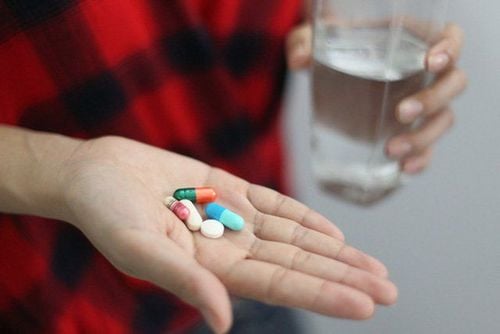
Bác sĩ có thể chỉ định điều trị chống trầm cảm bằng cách uống thuốc
5. How to prevent postpartum depression
If you have a history of depression, especially postpartum depression, consult your doctor if you are planning to become pregnant or as soon as you find out you are pregnant.During pregnancy, your doctor may monitor you closely for signs and symptoms of depression. Your doctor may ask you to complete a depression screening questionnaire during pregnancy and after giving birth. Sometimes mild depression can be managed with support groups, counseling, or other therapies. In other cases, antidepressants may be prescribed even if you are pregnant.
After giving birth, your doctor may order an early postpartum checkup to screen for signs and symptoms of postpartum depression. The earlier it is detected, the sooner treatment can begin. If you have a history of postpartum depression, your doctor may prescribe antidepressant treatment or psychotherapy soon after birth.
Please dial HOTLINE for more information or register for an appointment HERE. Download MyVinmec app to make appointments faster and to manage your bookings easily.
Reference source: babycenter.com



